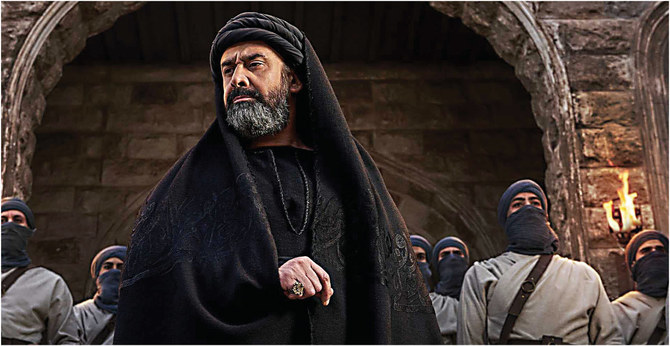by JONATHAN GORNALL

- Ramadan television series sheds light on iconic culture made famous by video game Assassin’s Creed
- Modern Nizari Ismailis ‘hate’ the misrepresented reputation of their forebears, says Islamic scholar
The sweeping period drama “Al-Hashasheen” — or “The Assassins” — is certain to be one of the big hits of the Ramadan TV season.
For many younger viewers, the story of the martial order founded by an enigmatic religious leader in 11th-century Iran will be familiar only through the distorting lens of the smash-hit video game franchise “Assassin’s Creed” — now available for the first time in a virtual-reality version compatible with Meta’s Quest headsets.
“Al-Hashasheen,” starring Karim Abdel Aziz, Fathy Abdel Wahab and
Nicolas Mouawad, brings a somewhat more realistic version of the story
to a wider audience as families across the region gather for traditional
post-iftar TV viewing.
But neither the TV series nor the long-running video game franchise do justice to the true story of the Nizari Ismaili sect, the original “assassins,” according to an Iranian-British Islamic scholar.
Many of the myths and legends surrounding the Nizaris “are rooted in the imaginative ignorance of the Crusaders and their Western chroniclers who came to the Holy Land and conquered Jerusalem in 1099,” Farhad Daftary, a governor and director emeritus of the London-based Institute of Ismaili Studies, told Arab News.
The very word “assassin,” coined first by the Crusaders who encountered the Nizaris in Syria, derives from an etymological misunderstanding.
“At the time, the Nizaris, who were Shiite, had enemies among Sunni Muslims, who referred to them as hashshashin, which, if you take its literal meaning, means somebody who uses opium,” said Daftary.
“But it was not in that sense that the term was applied to the Nizari Ismailis of Syria. It was a term of abuse, meaning a people of low morality, people with no social standing. The term was picked up by the Crusaders and interpreted literally.”
Arab News for more